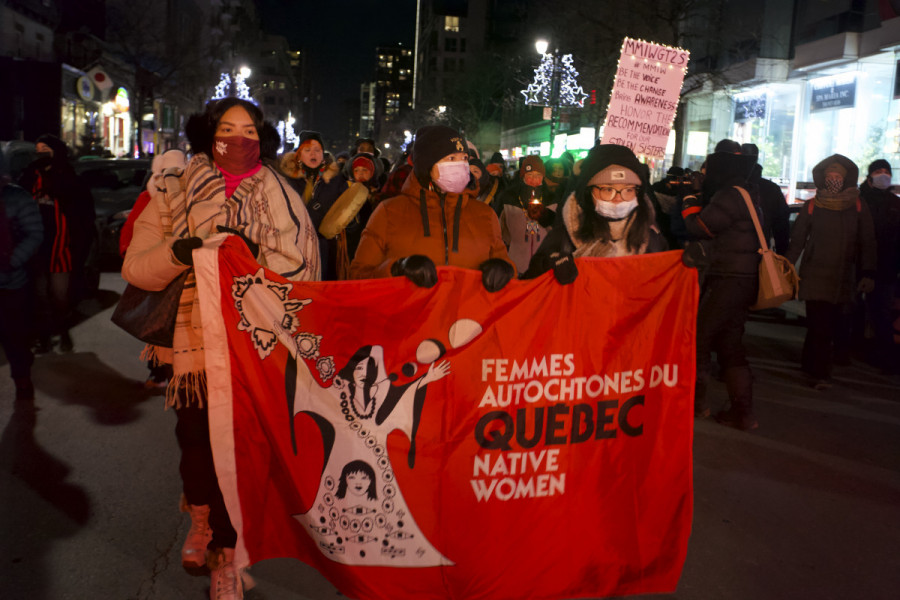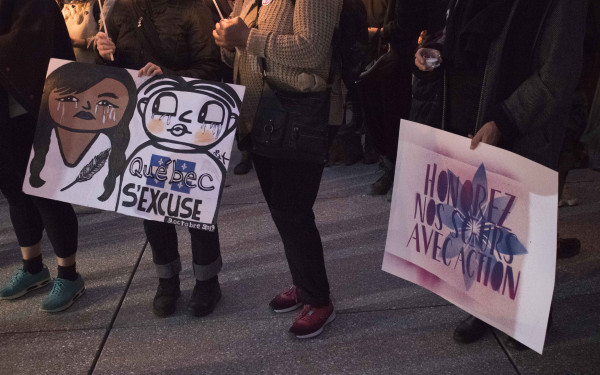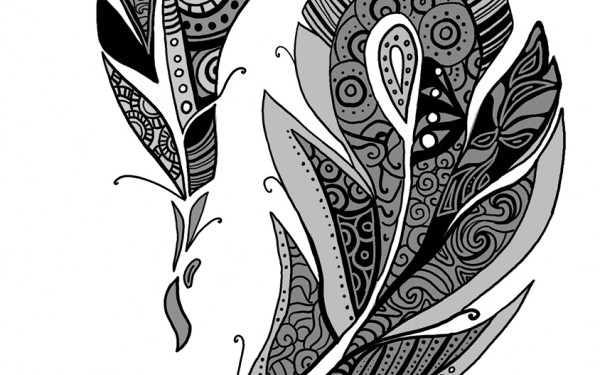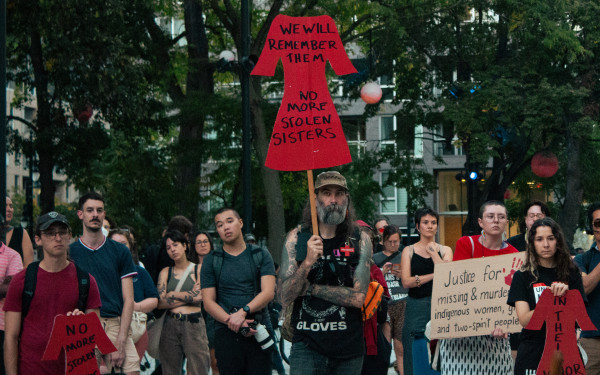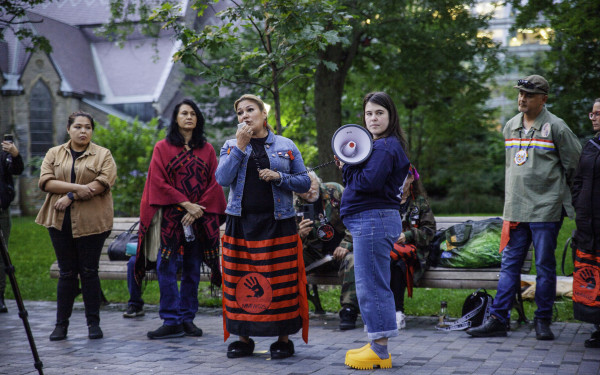‘No more stolen sisters’: A call to end the crisis of missing and murdered Indigenous women and girls
Montrealers joined supporters across the country in the 31st annual memorial for MMIWGT2S
On a bitterly cold night, hundreds chanted “No more stolen sisters!” as they marched down Ste. Catherine St. from Cabot Square on Monday.
The crowd called for an end to Missing and Murdered Indigenous Women, Girls, Trans and 2SLGBTQA+ people.
Organized by the Native Women’s Shelter of Montreal, the Iskweu Project, and Quebec Native Women, the event was held in honour of the 31st annual Women’s Memorial March. The first memorial took place on Feb. 14, 1992 in downtown Vancouver, after an Indigenous woman was found murdered on Powell St. Since then, Indigenous women and girls continue to be victims of gendered violence at disproportionately high rates.
“I can become one of them,” said Eva Mae, Inuk from Nunavik, who was a volunteer at the march. “I can be a statistic like them.” Mae said the issue isn’t widely known, and that she learned about MMIWGT2S through Indigenous creators on TikTok.
The number of MMIWG have been identified as a human rights crisis in recent years, prompting the Canadian government to launch a national public inquiry in 2016. The Final Report of the National Inquiry into Missing and Murdered Indigenous Women and Girls was released in June 2019, and declared violence against gender-diverse Indigenous people in Canada “a national tragedy of epic proportion.” It listed 231 Calls for Justice directed at the government, institutions and citizens, with an additional 21 that were specific to Quebec in a supplementary report.
“We know that in 2019, there were 231 calls to justice. I don’t know what anyone’s doing about it,” said Nakuset, executive director of the Native Women’s Shelter. “But we’re [asking] for support for organizations that are doing the work. Because if we wait for the government [...] it may never happen.”
Advocates echoed Nakuset’s call for attendees to extend their support beyond the march. Jessica Quijano, coordinator of the Iskweu project, asked supporters to raise awareness and ask government representatives for resources to address the crisis.
“We need to tear down these horrible systems that just continue to perpetuate violence and intergenerational trauma,” Quijano said. “We need healing, restorative justice, services and housing.”
Nakuset said that while the Native Women’s Shelter is a resource for Indigenous women in need, the Iskweu Project was created to support families and loved ones in cases of
MMIWGT2S in Quebec. Iskweu aims to “offer support and ensure adequate response from institutions when someone goes missing,” and is creating a database of MMIWG2ST in the province.
“There are databases in provinces in the west [for MMIWGT2S],” said Janis Qavavauq-Bibeau, research coordinator at Iskweu. “But I was actually hired for this reason, to create one for the province of Quebec.”
A 2014 RCMP report said there were 46 Indigenous women murdered in Quebec between 1980 and 2012. But Qavavauq-Bibeau said that so far, her research identifies more than 200 cases of MMIWGT2S. She said her work at Iskweu has been stressful and triggering on a personal level.
“My grandma was murdered in 2005, so it’s really important for me to do this march,” Qavavauq-Bibeau said. “[MMIWGT2S] is not a normal thing, and it will never be a normal thing for us.”
The event ended with a drum ceremony by the Buffalo Hat Singers, and a song performed by throat singer Nina Segalowitz, Inuvialuk/Dene from Fort Smith, Northwest Territories.
“The song that I’m going to sing is called the ‘Healing Song,’” Segalowitz said. “And right now, we are part of the healing. You are part of our healing.”

